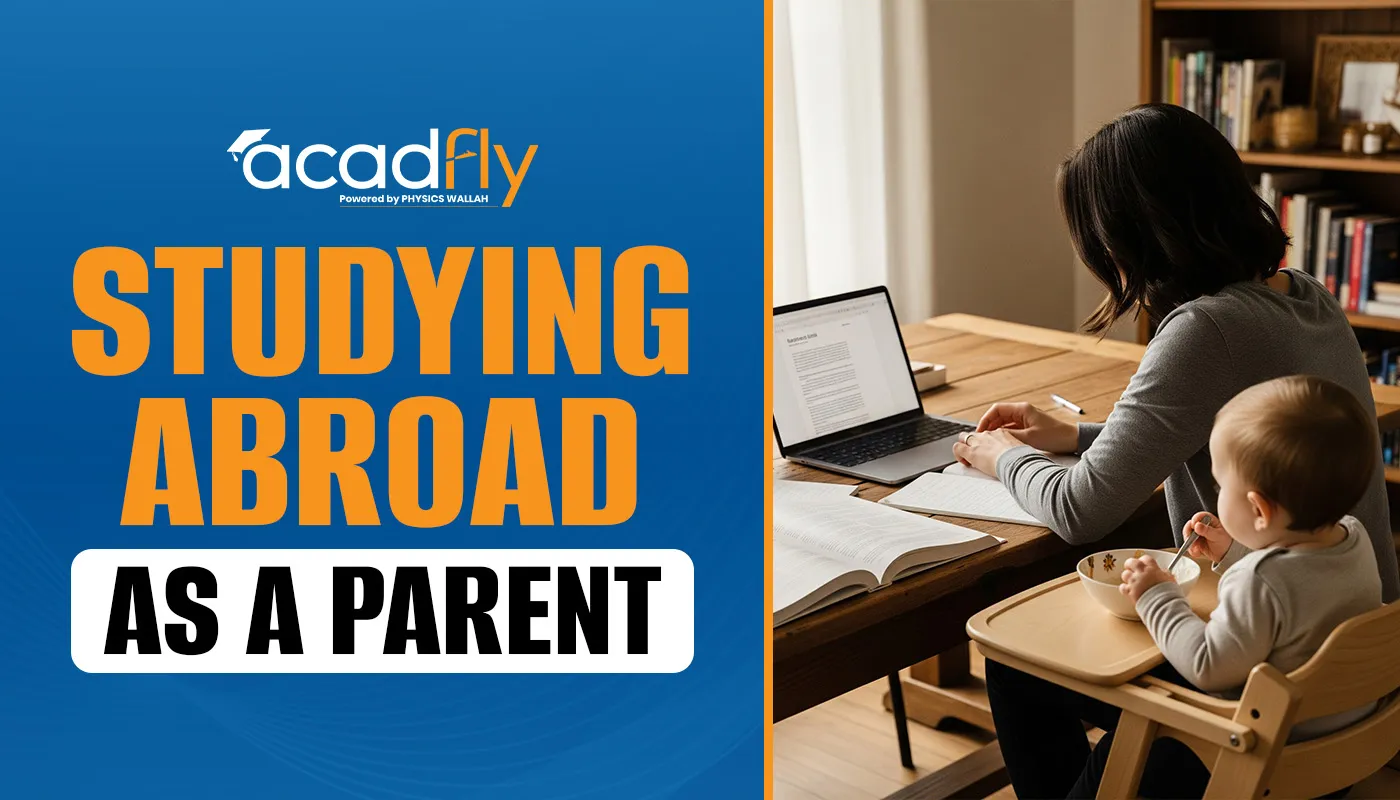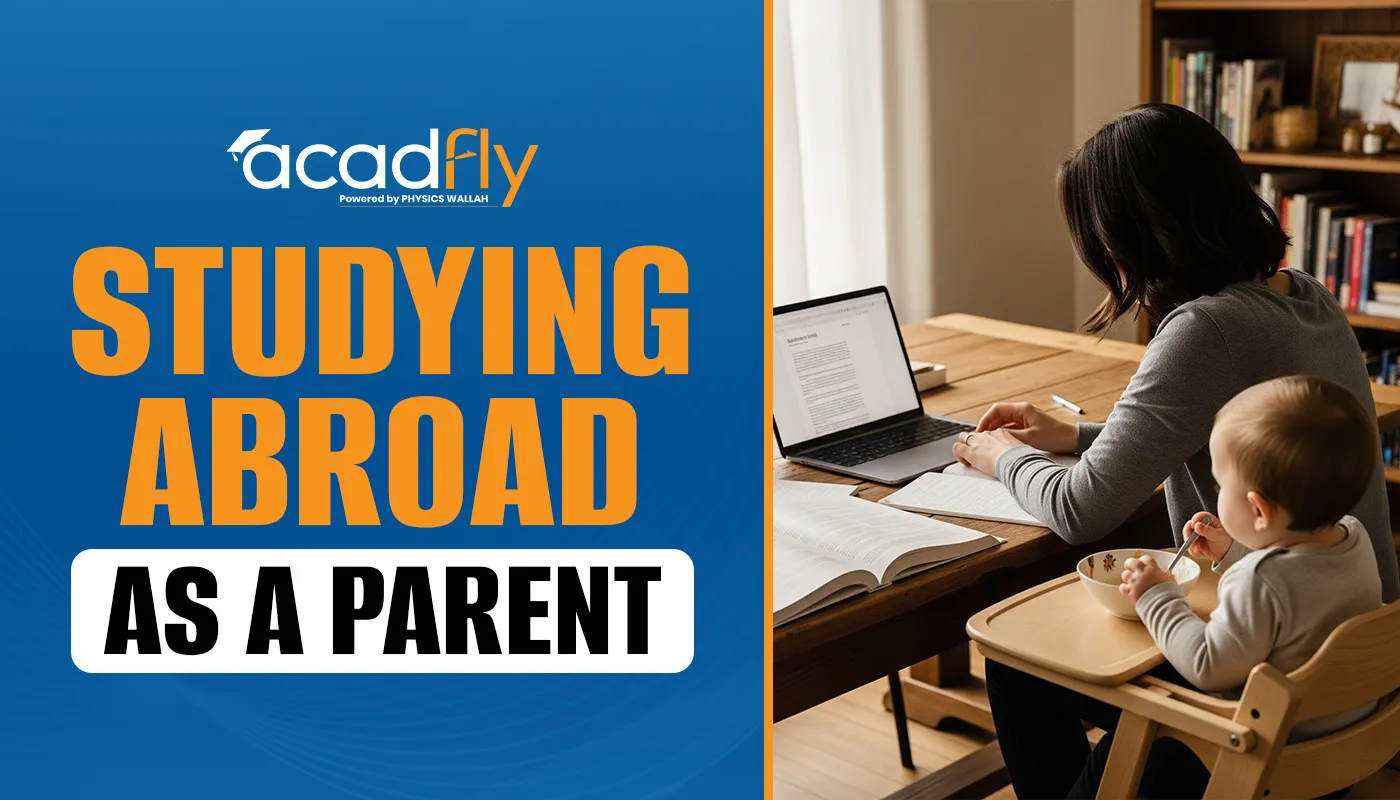


Studying abroad is a life-changing experience, offering opportunities for academic growth, cultural enrichment, and personal development. However, for parents, the decision to pursue education in a foreign country comes with additional challenges and considerations. Balancing academic responsibilities with parenting duties requires careful planning and a strong support system. This article explores the unique challenges and rewards of studying abroad as a parent, providing practical tips and high-volume keywords to help you navigate this exciting yet demanding journey.
Understanding the Challenges
Studying abroad as a parent involves a complex set of challenges that go beyond those faced by traditional students. These include:
1. Logistical Planning
Relocating to a new country with children involves intricate logistical planning. This includes securing housing that accommodates your family, arranging for child care or schooling, and managing visas and other legal requirements.
2. Financial Strain
The financial burden of studying abroad can be significant, and for parents, it includes additional expenses for child care, education, and daily living costs. Budgeting and seeking financial aid or scholarships specifically designed for student parents can help alleviate this strain.
3. Balancing Responsibilities
Balancing academic responsibilities with parenting duties is perhaps the most daunting challenge. Time management becomes crucial as parents juggle classes, assignments, and family needs.
4. Emotional and Social Challenges
Moving to a new country can be emotionally taxing for both parents and children. Parents need to address their own homesickness while also helping their children adjust to a new environment and culture.
Practical Tips for Studying Abroad as a Parent
1. Research and Plan Ahead
Thorough research and planning are essential for a successful study abroad experience as a parent. Start by identifying universities and programs that are family-friendly and offer support services for student parents. Look into the cost of living, availability of housing, and quality of local schools or child care facilities.
2. Seek Financial Assistance
Many institutions offer scholarships, grants, and financial aid specifically for student parents. Research and apply for these opportunities to ease the financial burden. Additionally, consider part-time work or assistantships that provide flexible hours and financial support.
3. Choose Family-Friendly Housing
When selecting housing, prioritize safety, proximity to the university, and access to child care or schools. University-affiliated housing or family-oriented neighborhoods can provide a supportive community and essential amenities.
4. Create a Support Network
Building a support network is crucial for managing the demands of studying abroad as a parent. Connect with other student parents, join parenting groups, and engage with local communities. Universities often have support services, counseling, and social events specifically for families.
5. Establish a Routine
Creating a consistent routine helps both parents and children adjust to their new environment. Establishing regular schedules for meals, study time, and family activities can provide stability and reduce stress.
6. Utilize University Resources
Take advantage of the resources offered by your university. Many institutions provide child care services, family housing, counseling, and academic support tailored for student parents. Don’t hesitate to seek help when needed.
7. Involve Your Children in the Experience
Involve your children in your study abroad journey to help them feel included and excited about the experience. Explore the new culture together, participate in local events, and encourage them to make new friends. This can enhance their adaptability and make the transition smoother.
8. Prioritize Self-Care
Balancing parenting and academic responsibilities can be overwhelming, making self-care essential. Make time for yourself, engage in activities you enjoy, and seek support when needed. Maintaining your well-being is crucial for successfully managing your dual roles.
9. Stay Connected with Home
Staying connected with family and friends back home can provide emotional support and reduce feelings of isolation. Regular video calls, social media, and visits (if feasible) can help maintain these important relationships.
Embracing the Rewards
While studying abroad as a parent presents unique challenges, it also offers numerous rewards:
1. Personal and Academic Growth
Pursuing higher education in a foreign country allows for significant personal and academic growth. It broadens your perspective, enhances your skills, and opens up new career opportunities. As a parent, you serve as a role model for your children, demonstrating the value of education and resilience.
2. Cultural Enrichment
Living in a different country exposes you and your children to new cultures, languages, and traditions. This cultural immersion fosters open-mindedness, adaptability, and a global outlook, enriching your family’s life experience.
3. Stronger Family Bonds
The shared experience of studying abroad can strengthen family bonds. Overcoming challenges together and exploring a new environment fosters closeness and mutual support within the family unit.
4. Networking Opportunities
Studying abroad offers valuable networking opportunities that can benefit your future career. Building connections with international peers, professors, and professionals can lead to collaborations, job opportunities, and lifelong friendships.
5. Enhanced Life Skills
Managing the dual roles of student and parent abroad develops critical life skills such as time management, problem-solving, and resilience. These skills are not only beneficial for your academic and professional pursuits but also for personal growth.
Conclusion
Studying abroad as a parent is a challenging yet immensely rewarding journey. It requires meticulous planning, effective time management, and a robust support system. By researching and planning ahead, seeking financial assistance, choosing family-friendly housing, creating a support network, establishing a routine, utilizing university resources, involving your children in the experience, prioritizing self-care, and staying connected with home, you can successfully navigate this unique experience.
The rewards of personal and academic growth, cultural enrichment, stronger family bonds, networking opportunities, and enhanced life skills make the challenges worthwhile. Embrace this adventure with an open mind and heart, and you will find that studying abroad as a parent can be a transformative and enriching experience for both you and your children.
Frequently Asked Questions
Is it possible to study abroad with children?
What are the biggest challenges of studying abroad as a parent?
Are there scholarships for student parents studying abroad?
What support do universities offer for student parents?










